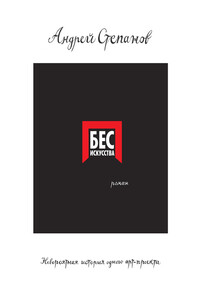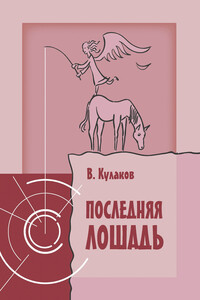36 Arguments for the Existence of God - [55]
That wasn’t the way Cass’s mother told the story, but Cass wasn’t about to argue with Professor Klapper’s superior erudition.
“We shall seize this extraordinary expedient posthaste! Reb Chaim, I count on you to make the necessary arrangements!”
XII The Argument from Prime Numbers
They rode to New Walden in a Lincoln Continental.
It had been Roz who had gone to the streamered lot in Somerville and rented the car on Klapper’s-or, rather, Frankfurter’s-dime. Jonas Elijah Klapper had never learned to drive, so a chauffeur was needed, or so Roz kept insisting to Cass.
“But I know how to drive.”
“Tell him your license has expired! I’m not missing this!”
Professor Klapper had seemed a bit put out to learn that an unknown female would be accompanying them, but his attitude toward Cass had undergone so steep an upgrade since he’d learned of Cass’s Valdener connections that he had refrained from too vigorous a protest.
After Professor Klapper had settled himself into the front passenger seat, he turned and examined the driver at length, peering at her over the top of his bifocals.
“I presume from your coiffure that you are an adherent of Rastafarianism. I can assure you that I accord your belief system the same respect I do all religions. I believe it to be a prejudice of temporalism, akin to racism and sexism, when a religion is dismissed on the grounds that it has been established at a time too near the present. Indeed, all religions emerged at some present or other. So let me hasten to declare that you will find nothing but deference on my part for your faith that Haile Selassie is the Messiah.”
Cass braced himself for Roz’s reaction, which, if they were lucky, would be confined to peals of laughter, but Roz stared straight ahead and remained silent.
Jonas Elijah Klapper, satisfied that he had made his point of view known, turned himself to the activity of getting the seat belt around him and inserted into its buckle. He was struggling with the contraption, and Roz, under normal circumstances, would have offered to help, but she couldn’t risk an utterance that would unblock the swell of laughter that she was forcefully resisting for poor Cass’s sake. At last they heard the click, and Roz wordlessly put the car into gear.
Before they’d gotten very far on the Massachusetts Turnpike, Jonas Elijah Klapper decided that he did, vehemently, object to the Rastafarian’s driving. Either Roz normally drove like this, or she was enjoying getting a rise out of their passenger. From the back, Cass could see that Professor Klapper was gripping the sides of his seat.
“Which of these contraptions indicates the speed at which we are recklessly hurtling, young lady?”
“Gee, I don’t know. Is there any way to tell our speed, Cass?”
“Now, see here, they have helpfully posted the speed limit at regular intervals- There! There! We just passed another sign with ‘55’ emblazoned upon it! There must be some way to determine the rate at which you are hastening us toward our death.”
He leaned over to try to get a look at the dials.
“Don’t do that, Jonas! Never crowd the driver, especially at the rate we’re going!”
“So you admit we are exceeding the limit! I demand that you pull over immediately and cede the steering wheel to Mr. Seltzer!”
“His license is expired! It’s against the law!”
“So is the reckless endangerment of one’s mortally afrighted passengers! I shall defray all costs should Mr. Seltzer be issued a summons.”
“What about the points on his record? What about the hike in his insurance premiums?”
“Gladly shall I compensate for all, young lady! Premiums, tickets, a hush-hush bribe to the stalwart officer in blue if he can be induced to take it! It shall all be worth it to live to see another morrow!”
The professor prevailed. Cass and Roz switched places.
It was a cold but piercingly bright Sunday afternoon in late February. As they crossed the Hudson River on the Tappan Zee Bridge, the skyline of Manhattan rose up in all its glory.
“It isn’t far now,” Cass announced. He found himself excited to be returning after all these years.
His mother had been amazed when he’d told her about the field trip he was taking. He had called her, at Professor Klapper’s urging, to find out how they should get in touch with the Rebbe to arrange for a personal visit.
“My cousin Henoch,” Deb had answered. “He’s the Rebbe’s gabbai, or personal assistant. It all goes through Cousin Henoch.”
“Do you have Cousin Henoch’s phone number?”
“I’ll get it from Shaindy.” Shaindy, another of Deb’s countless cousins, was the only one in the family with whom Deb remained in contact. Deb’s family had been unusual in New Walden, since Deb had no brothers and sisters, prompting her to fantasize that whatever had prevented her parents from being maximally fruitful had prevented them from having any children at all. The fact that she looked so much like her father, Mendel Sheiner, who had been a bookkeeper in a jewelry exchange in Manhattan’s Diamond District, didn’t count conclusively against her fantasy. A lot of the Valdeners resembled each other. The Rebbe may have decided to redistribute the wealth, taking from a family with lots of children to give to a sterile couple. Anyway, it was a fantasy.

В книге рассказывается история главного героя, который сталкивается с различными проблемами и препятствиями на протяжении всего своего путешествия. По пути он встречает множество второстепенных персонажей, которые играют важные роли в истории. Благодаря опыту главного героя книга исследует такие темы, как любовь, потеря, надежда и стойкость. По мере того, как главный герой преодолевает свои трудности, он усваивает ценные уроки жизни и растет как личность.

В городе появляется новое лицо: загадочный белый человек. Пейл Арсин — альбинос. Люди относятся к нему настороженно. Его появление совпадает с убийством девочки. В Приюте уже много лет не происходило ничего подобного, и Пейлу нужно убедить целый город, что цвет волос и кожи не делает человека преступником. Роман «Белый человек» — история о толерантности, отношении к меньшинствам и социальной справедливости. Категорически не рекомендуется впечатлительным читателям и любителям счастливых финалов.

Кто продал искромсанный холст за три миллиона фунтов? Кто использовал мертвых зайцев и живых койотов в качестве материала для своих перформансов? Кто нарушил покой жителей уральского города, устроив у них под окнами новую культурную столицу России? Не знаете? Послушайте, да вы вообще ничего не знаете о современном искусстве! Эта книга даст вам возможность ликвидировать столь досадный пробел. Титанические аферы, шизофренические проекты, картины ада, а также блестящая лекция о том, куда же за сто лет приплыл пароход современности, – в сатирической дьяволиаде, написанной очень серьезным профессором-филологом. А началось все с того, что ясным мартовским утром 2009 года в тихий город Прыжовск прибыл голубоглазый галерист Кондрат Евсеевич Синькин, а за ним потянулись и лучшие силы актуального искусства.

Семейная драма, написанная жестко, откровенно, безвыходно, заставляющая вспомнить кинематограф Бергмана. Мужчина слишком молод и занимается карьерой, а женщина отчаянно хочет детей и уже томится этим желанием, уже разрушает их союз. Наконец любимый решается: боится потерять ее. И когда всё (но совсем непросто) получается, рождаются близнецы – раньше срока. Жизнь семьи, полная напряженного ожидания и измученных надежд, продолжается в больнице. Пока не случается страшное… Это пронзительная и откровенная книга о счастье – и бесконечности боли, и неотменимости вины.

Книга, которую вы держите в руках – о Любви, о величии человеческого духа, о самоотверженности в минуту опасности и о многом другом, что реально существует в нашей жизни. Читателей ждёт встреча с удивительным миром цирка, его жизнью, людьми, бытом. Писатель использовал рисунки с натуры. Здесь нет выдумки, а если и есть, то совсем немного. «Последняя лошадь» является своеобразным продолжением ранее написанной повести «Сердце в опилках». Действие происходит в конце восьмидесятых годов прошлого столетия. Основными героями повествования снова будут Пашка Жарких, Валентина, Захарыч и другие.

В литературной культуре, недостаточно знающей собственное прошлое, переполненной банальными и затертыми представлениями, чрезмерно увлеченной неосмысленным настоящим, отважная оригинальность Давенпорта, его эрудиция и историческое воображение неизменно поражают и вдохновляют. Washington Post Рассказы Давенпорта, полные интеллектуальных и эротичных, скрытых и явных поворотов, блистают, точно солнце в ветреный безоблачный день. New York Times Он проклинает прогресс и защищает пользу вечного возвращения со страстью, напоминающей Борхеса… Экзотично, эротично, потрясающе! Los Angeles Times Деликатесы Давенпорта — изысканные, элегантные, нежные — редчайшего типа: это произведения, не имеющие никаких аналогов. Village Voice.